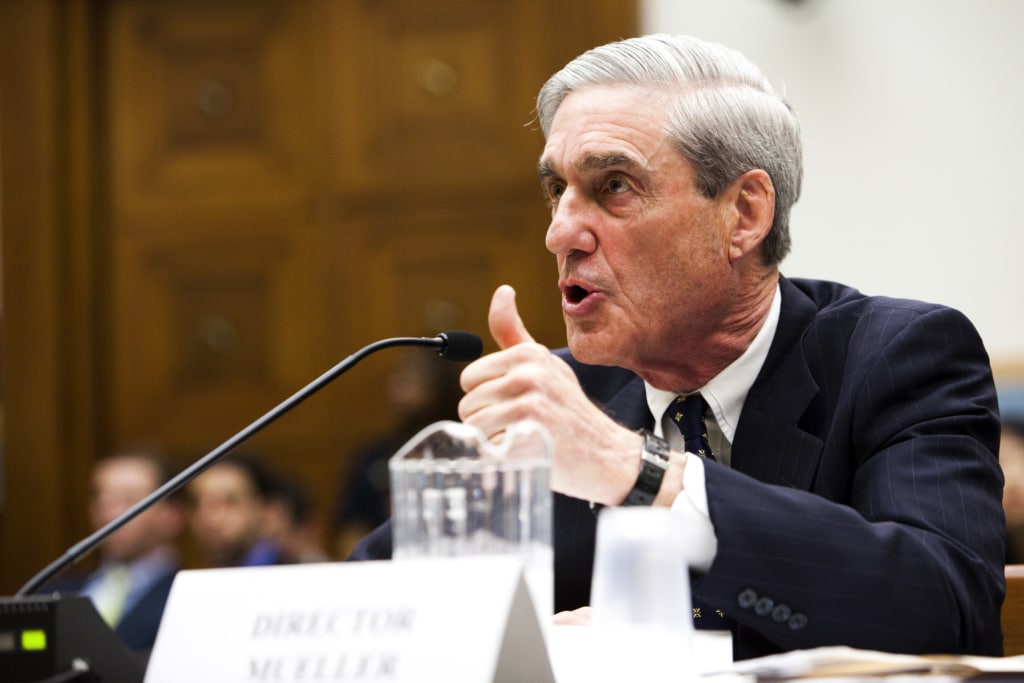It seems like common sense. No one should be able to forcibly remove anyone or any group who is actively investigating them without a really really good reason.
We certainly aren’t able to choose who investigates us or for how long. So why should those in power be?
Nearly four years ago, New York Gov. Andrew Cuomo, a Democrat, came under fire for suddenly shutting down the Moreland Commission ― a panel he created that was put in place to probe into corruption inside the state government. The New York Times reported at the time that Cuomo disbanded the commission just as it had begun probing inside his executive branch.
Obviously, the timing seemed suspicious. Cuomo was eventually cleared of any wrongdoing in the affair, but a concrete reason for canning the group was never really given. Cuomo’s reason was that he could shut down the commission any time he wanted because “it’s my commission.”
We should treat President Donald Trump’s open flirtation with firing special counsel Robert Mueller with the same suspicion. And that’s why Congress should move forward with what it began long ago ― providing a legislative solution that would create a new buffer between presidents and special counsels.
A bill composed by North Carolina Sen. Thom Tillis and South Carolina Sen. Lindsey Graham ― both Republicans ― and Delaware Sen. Chris Coons and New Jersey Sen. Cory Booker ― both Democrats ― has been in the working since last year. The legislation would put into law current regulation that a special counsel can only be fired by the attorney general, and only for good reason. It also creates a 10-day window in which a fired special counsel can seek judicial review of the firing. If it is determined that he or she was not fired for good cause, then they would be reinstated.
The Senate Judiciary Committee will vote on whether to advance the legislation to the chamber floor next week. Its importance cannot be overstated, especially as many now believe that Mueller may be riding on borrowed time.
Following last week’s raid by the FBI on the home, office and hotel room of Trump’s personal lawyer, Michael Cohen, the prospect that Trump may order the firing of the former bureau chief now in charge of the Russia investigation is more likely than ever. The president called the raid “an attack on our country,” “an attack on what we stand for” and reiterated his belief that the investigation remains “a total witch hunt.”
Republican leaders in both houses of Congress, including House Speaker Paul Ryan and Senate Majority Leader Mitch McConnell, both continue to insist that the special counsel legislation is not necessary, saying they believe Mueller should be allowed to finish his investigation and that they don’t believe the president would fire him anyway.
However, the words and actions coming from the president and his allies don’t seem to echo that kind of confidence. Indeed, The New York Times has reported in recent months that Trump wanted to fire Mueller back in June ― barely after he had been appointed ― and again in December. What is to stop him from actually firing him in April?
He has to know that firing Mueller would have extreme political repercussions, and even if he doesn’t, Republican colleagues in Congress have reminded him as much, over and over again. Texas Rep. John Cornyn said doing it would be a mistake. Iowa Sen. Chuck Grassley said it would be “suicide for the president to want, to talk about firing Mueller.” And Sen. Graham has said multiple times that removing the special counsel “would be the beginning of the end of his presidency.”
But while they sound so sure that Mueller won’t be shown the door any time soon, Trump’s press secretary said last week that the White House “believes” Trump does have the authority to fire Mueller directly, even though regulations clearly state that the attorney general can only fire special prosecutors. Since Jeff Sessions recused himself from anything directly related to the Russia investigation, the authority falls on Deputy Attorney General Rod Rosenstein, who may also be approaching the chopping block.
That just makes the bipartisan legislation that would protect Mueller that much more important.
But really, when it comes down to it, the proposed bill isn’t about President Trump. It’s not about Mueller, Rosenstein or presidents’ lawyers. It’s about drawing a line in the sand. It’s about making a statement that no one ― whether they be a U.S. president or governor of New York ― is above the law. It’s about setting a new precedent of independence between politicians and investigators.
At minimum, this bill would send a strong message to the president that firing Mueller would not be a wise move. At its best, this bill would remind us all that we are in fact a nation of law and justice, checks and balances, and accountability.
Luke Parsnow is a digital producer at CNY Central (WSTM NBC 3/ WTVH CBS 5/ WSTM CW6) and contributing writer at The Syracuse New Times in Syracuse, New York. You can follow his blog “Things That Matter” on WordPress and follow his updates on Twitter.



